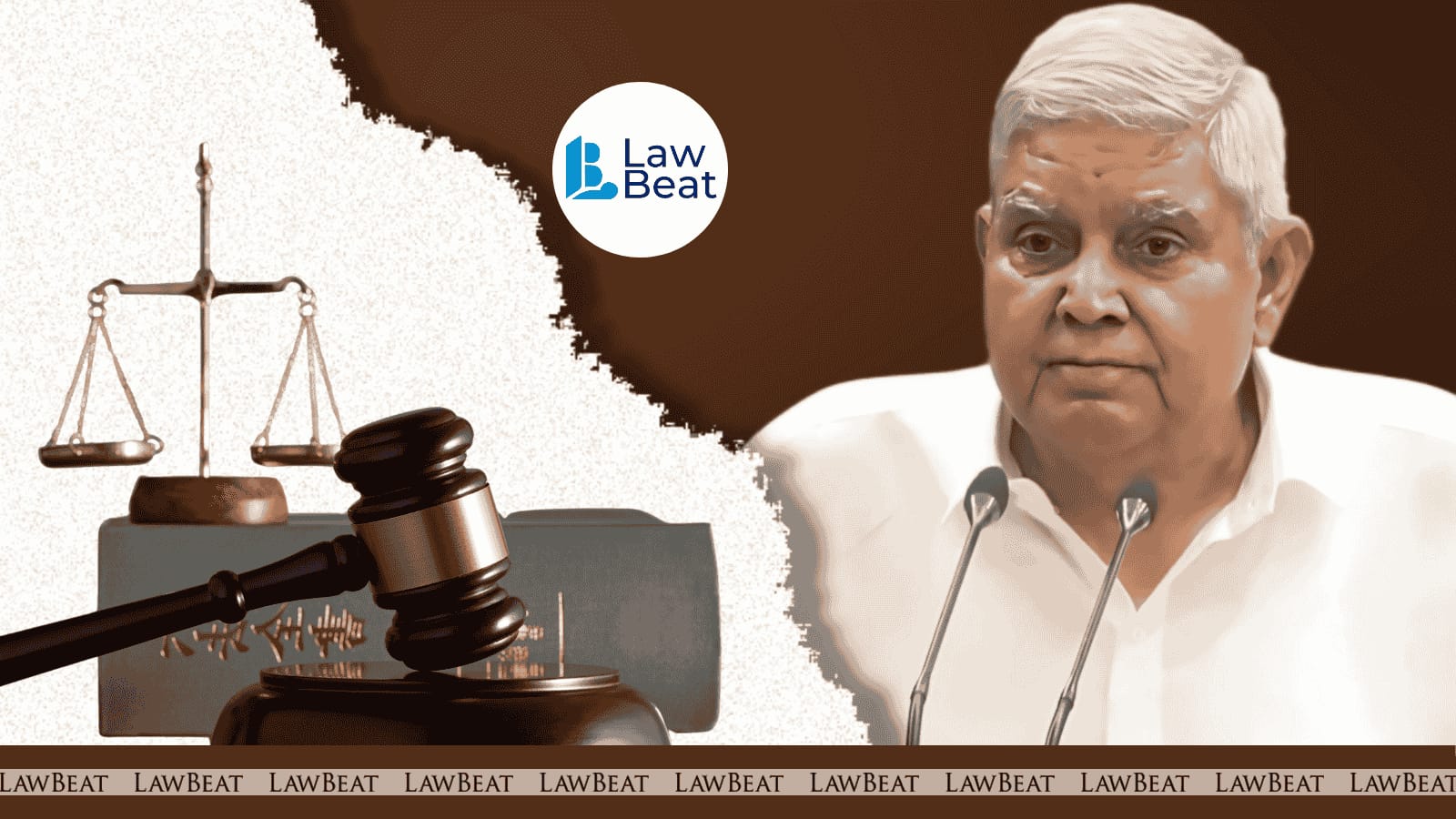“Even If It’s a Can of Worms, Blow It Open”: Vice President Dhankhar Asks Why Judges Enjoy Immunity Beyond Law

"Public confidence in the institution of judiciary is dwindling," Vice President Dhankhar remarked, addressing the growing disillusionment with the system’s lack of transparency and accountability
In a pointed and strongly worded address, Vice President of India and Rajya Sabha Chairman Jagdeep Dhankhar raised serious concerns over what he described as a troubling erosion of the rule of law in the context of a recent, initially undisclosed incident at the residence of a sitting judge in New Delhi.
Speaking at the valedictory function of the 6th Rajya Sabha Internship Program, the Vice President questioned the delay in disclosing the March 14–15 incident, which remained outside public view for nearly a week.
“For seven days, no one knew about it,” he said. “We have to ask questions to ourselves: Is the delay explainable? Condonable? Does it not raise certain fundamental questions?” he stressed.
Describing the situation as emblematic of a selective application of the law, Dhankhar drew a stark comparison. “If the event had taken place at his(a common citizen's) house, the speed would have been an electronic rocket. Now, it is not even a cattle cart,” he said, highlighting what he sees as a concerning deviation from the principle of equality before law.
The Vice President expressed dismay over the absence of a formal investigation. “No investigation under law is in progress at the moment,” he said, pointing to the lack of a First Information Report (FIR) in a matter that, by law, ought to have triggered police action. “It is the law of the land that every cognizable offence is required to be reported to the police. And failure to do so—failure to report a cognizable offence—is a crime.”
Dhankhar went on to question the apparent legal immunity enjoyed by members of the judiciary. “The Constitution of India has accorded immunity from prosecution only to the Hon’ble President and the Hon’ble Governors,” he said. “So how come a category beyond law has secured this immunity?”
Underscoring that an FIR can be registered against any constitutional authority, including the Vice President himself, Dhankhar noted, “But if it is judges—FIR cannot be straightaway registered. It has to be approved by the concerned in judiciary. But that is not given in the Constitution.”
While reiterating his respect for the principle of presumption of innocence, Dhankhar stressed that this should not preclude proper legal scrutiny. “Investigation is required,” he said. “The nation is restive.”
He emphasized the urgency for transparency and public accountability of the judiciary: “Even if it is a can of worms… time to blow up the can. Time for its lid to go out. And time for the cupboard to collapse. Let the worms and skeletons be in public domain so that cleansing takes place.”
Dhankhar also took aim at the current fact-finding mechanism—a committee of judges—tasked with examining the incident. Questioning its constitutional and legal standing, he asked, “Is the committee under the Constitution of India? No. Is this committee of three judges having any sanction under any law emanating from Parliament? No.”
He reiterated that investigation is the domain of the executive, not the judiciary, and described the committee’s work as “inherently lacking legal standing.”
Citing a recent media survey suggesting a decline in public confidence in the judiciary, the Vice President warned that the growing opacity and perceived lack of accountability were undermining democratic values.
Turning to the broader issue of judicial appointments, Dhankhar revisited the 1993 Supreme Court judgment that interpreted “consultation” in Article 124 of the Constitution as “concurrence.”
"Constitution framers were very wise people who deeply believed in national welfare. They debated for 18 sessions for a little less than three years. There was no confrontation. There were no disturbance, no disruption. There were dialogue, debate, discussion and deliberation. They framed one rule. The judges will be appointed under Article 124 and the word consultation was used. Consultation is not concurrence. Consultation is consultation," he said.
Quoting Dr. B.R. Ambedkar, he said, “To allow the Chief Justice practically a veto upon the appointment of a judge is really to transfer the authority to the Chief Justice which we are not prepared to vest in the President or the Government of the day.”
VP Dhankhar concluded with a call to uphold constitutional accountability across all branches of government. “Are we not answerable to 'We the People' who gave us the Constitution?” he asked.
